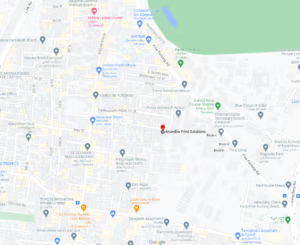Asset Tags
Asset Tags Manufacturer
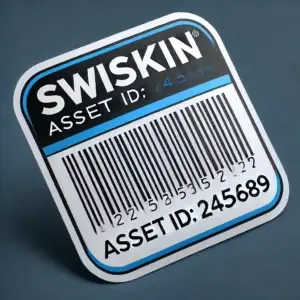
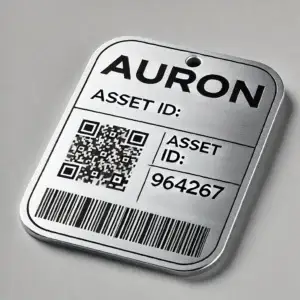
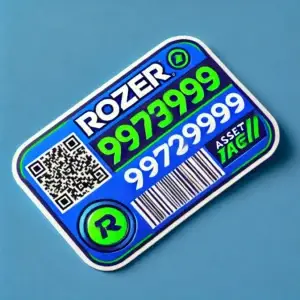
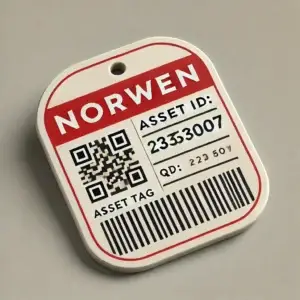
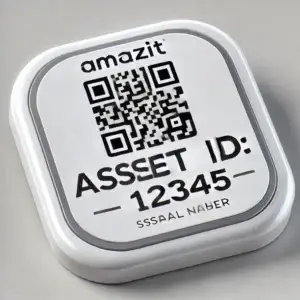
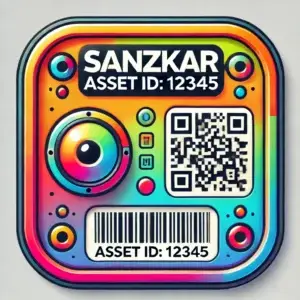
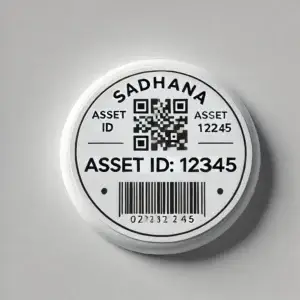
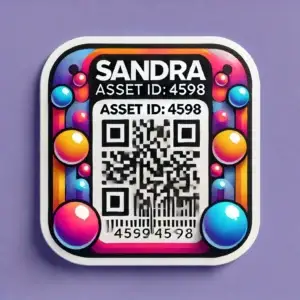
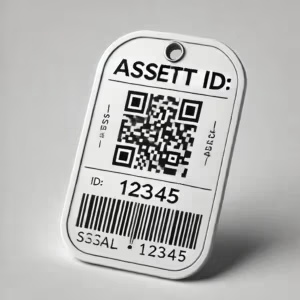
Introduction to Asset Tags
Fixed asset tags are essential tools for tracking and managing valuable business equipment and property. These tags are in the form of stickers and labels, are identically coded to track each asset individually. Whether you run a small business or a large organization, implementing asset tags helps maintain accurate inventory records, monitor asset movement, and reduce the risk of loss or theft.
By incorporating barcodes, QR codes, or serial numbers, fixed asset tags simplify audits, improve maintenance scheduling, and enhance overall accountability. Durable and tamper-resistant, they can be applied to a wide range of items including laptops, machinery, furniture, and electronics.
Using high-quality asset tags not only ensures compliance with asset management policies but also supports financial reporting by providing real-time data on depreciation and asset usage. A smart investment, fixed asset tags streamline operations while protecting your critical resources
What Are Asset Tags?
Asset tags are specially designed labels used to identify, track, and manage physical assets within a business or organization. These tags are typically affixed to equipment, tools, electronics, furniture, and other valuable items to provide a unique identification code—often in the form of a barcode, QR code, or serial number.
Fixed asset tags are used for long-term assets that are not intended for frequent movement. They help businesses keep accurate records, monitor asset location, and maintain control over inventory. By integrating with asset management software, these tags enable seamless tracking and reporting throughout the asset’s lifecycle.
Durable and tamper-resistant, they are made to withstand various environmental conditions, ensuring longevity and reliability. Whether used for audits, depreciation tracking, or security, these tags play a vital role in enhancing accountability and reducing the risk of asset loss or misuse.
Key Characteristics of High-Quality Asset Tags
1. Durability and Environmental Resistance
One of the most vital characteristics of effective asset tags is durability. These tags must withstand the wear and tear of daily operations. Whether attached to a rugged industrial machine or a frequently handled laptop, the tag should resist fading, peeling, scratching, and exposure to moisture or chemicals.
High-quality fixed asset tags are often made from materials like:
Polyester – For general indoor applications
Polycarbonate – Scratch-resistant and heat-resistant
Anodized Aluminum – Ideal for industrial and outdoor use
Vinyl – Flexible and suited for curved surfaces
2. Tamper-Proof and Secure
These tag stickers should be tamper-evident, deterring theft or misuse. Tamper-proof tags break apart or show visible signs of damage if removal is attempted, making them a powerful security feature.
3. Customizable Design
These tags must suit your organization’s internal asset management structure. This is where fixed asset tag templates come in. A well-designed template can include:
Company name or logo
Department name
Asset description
Serial or ID number
QR code or barcode
Color-coded elements for easy classification
Customization ensures tags are aligned with both branding and functional needs.
4. Adhesive Strength
The backing adhesive determines how long it stays in place. For long-term use, industrial-grade adhesives that bond to metal, plastic, or glass are necessary. Especially in outdoor or high-traffic environments, the adhesive should resist heat, water, and mechanical pressure.
5. Compatibility With Tracking Systems
The best tags integrate smoothly with enterprise resource planning (ERP) or asset management software through barcode or RFID scanning. This allows real-time asset status updates, location tracking, maintenance scheduling, and audit trail generation.
Special Focus: Fixed Asset Tags for Laptop Management
Asset tags for laptops are among the most widely used tagging solutions in today’s mobile-first workplaces. With increasing dependence on remote work and BYOD (Bring Your Own Device) policies, tagging laptops ensures accountability, minimizes losses, and tracks issuance and return.
Characteristics of effective fixed asset tags for laptops include:
Low-profile design that doesn’t obstruct usage
Scratch and heat resistance, especially near warm surfaces
Tamper-proof options to prevent label removal
Readable barcodes or QR codes for quick scanning
Integration with software to log repairs, ownership, and location
These tags are essential for IT departments managing hundreds or thousands of mobile devices.
Understanding the Fixed Asset Tagging Process
For effective implementation, organizations should follow a structured fixed asset tagging process flow chart, which outlines each step from tag creation to ongoing tracking.
Fixed Asset Tagging Process Flow Chart Overview:
Asset Identification and Classification
Categorize each asset by type, location, and department.Template Selection
Choose or design a fixed asset tag template that includes all required details.Tag Creation and Printing
Generate unique IDs and print tags with durable materials.Tag Application
Affix each fixed asset tag sticker securely to the corresponding asset.Data Entry
Enter asset details into a digital asset management system.Routine Tracking and Maintenance
Schedule regular checks, updates, and maintenance based on the tag’s data.Asset Retirement
Update the system when assets are decommissioned, sold, or scrapped.
This systematic process ensures consistency, transparency, and traceability across the asset lifecycle.
Using a Fixed Asset Tag Template: Streamlining Tagging at Scale
A standardized fixed asset tag template makes it easier to manage large inventories across departments or facilities. Templates reduce confusion, ensure consistency, and simplify training for teams involved in asset tagging.
Benefits of using a tag template:
Speeds up bulk tagging processes
Ensures uniform appearance
Avoids data entry errors
Supports future scalability
Digital templates can be shared across teams and updated as per organizational changes.
Industries Benefiting from Fixed Asset labels
1. Information Technology (IT) and Data Centers
The IT industry heavily depends on asset tags for laptops, desktops, servers, networking gear, and mobile devices. Each asset carries a unique ID for real-time tracking, helping IT teams manage device allocation, repair schedules, and upgrades.
Fixed asset tagging in this sector prevents device misplacement and simplifies the auditing process. Laptops tagged with barcodes or QR codes can be instantly identified and traced back to their user or department, improving accountability and lifecycle tracking.
2. Education Sector
Schools, colleges, and universities manage thousands of assets—from student laptops and projectors to lab instruments and classroom furniture. They help in tracking issuance, movement, and maintenance of school property.
Using a tag template allows educational institutions to standardize tagging across all departments. Fixed asset tag stickers with tamper-evident features ensure that valuable items stay secure and easily traceable even in high-traffic environments.
3. Healthcare and Medical Institutions
Hospitals and clinics operate complex facilities with a wide range of critical medical devices, diagnostic tools, and administrative equipment. These tags are essential to maintain inventory accuracy, comply with health regulations, and schedule preventive maintenance.
Each piece of medical equipment is tagged using a fixed asset tag sticker, ensuring traceability and reducing the risk of equipment loss or duplication. Barcodes and QR codes are used for easy scanning and instant data retrieval.
4. Manufacturing and Industrial Units
Manufacturers handle expensive machinery, tools, molds, spare parts, and raw materials—many of which are mobile or shared between departments. Fixed asset tagging enables companies to track usage, schedule calibrations, and ensure proper storage.
A detailed process flow chart helps teams implement a consistent tracking system across production lines. These tags used in industrial settings are often made from rugged materials like anodized aluminum or polycarbonate to withstand heat, oil, and abrasion.
5. Construction Industry
In construction, equipment like jackhammers, ladders, generators, and safety tools are frequently moved between job sites. They help track each item’s location and usage history.
Using tamper-resistant f tag stickers ensures that equipment is not misplaced or misused. By integrating with GPS and asset tracking apps, asset managers can optimize allocation and reduce downtime.
6. Retail and Warehousing
Retail stores and warehouses manage massive inventories, from display units to shelving systems, POS machines, and back-end logistics tools. Fixed asset tags help categorize, locate, and track these items accurately.
Standardized ftemplates enable quick tagging and easy scanning during audits. QR codes on tags can store detailed information such as supplier data, warranty terms, and restocking schedules.
7. Transportation and Logistics
Fleet operators, courier companies, and logistics service providers rely on thesetags to track vehicles, GPS units, cargo containers, and handling tools. This reduces loss, improves compliance, and increases efficiency.
Durable, weather-resistant tag stickers are applied to vehicles and transport crates, helping teams manage fleets remotely and retrieve asset histories during maintenance or replacement.
8. Government and Municipal Services
Government agencies handle a wide variety of assets—from computers and vehicles to office furniture and infrastructure. Public accountability and transparency demand strict tracking and regular audits.
By following a standardized tagging process flow chart, departments can tag assets with consistent formats, making audits seamless and efficient. These tags also aid in budgeting and policy compliance.
9. Banking and Financial Institutions
Banks and financial institutions require precise asset management for IT hardware, vault equipment, office furnishings, and surveillance systems. The tagging supports security audits and insurance documentation.
With serialized tags for laptops and hardware, institutions can ensure each item is accounted for and updated in real-time through asset management software.
10. Energy and Utilities Sector
Utility companies must track high-value infrastructure assets such as transformers, meters, tools, and protective gear. Using fixed asset tag stickers designed for harsh outdoor environments ensures long-term visibility and compliance.
These tags in this sector must be UV-resistant, waterproof, and readable even under dusty or oily conditions. QR codes can link to servicing history or compliance documents stored digitally.
11. Nonprofits and NGOs
Resource-limited nonprofit organizations benefit greatly from implementing asset stickers. With many donors and grant auditors requesting detailed asset reports, These tags make it easy to log and verify equipment, supplies, and office assets.
Templates can be customized to include donor or project codes using a template, making accountability and reporting seamless.
12. Hospitality and Event Management
Hotels, resorts, and event companies manage large volumes of movable assets like AV equipment, linens, kitchen appliances, and furniture. Asset labels ensure all items are returned post-events and prevent cross-location losses.
The tagging process here uses scannable tag stickers that streamline check-in/check-out procedures for equipment rental and hotel inventory tracking.
13. Aerospace and Defense
Aerospace firms and defense contractors maintain high-value, high-risk assets like surveillance gear, aircraft parts, and weaponry. Strict tracking via asset labels is not only essential but often mandated.
By leveraging secure tags, RFID technology, and encryption, these organizations maintain asset integrity and ensure national compliance with defense regulations.
Fixed Asset Tags FAQs: Everything You Need to Know
- Why Are Asset Tags Important?
Asset tags prevent loss, deter theft, and simplify audits. They help in streamlining inventory control and financial reporting.
- What Information is Included?
An asset tag generally includes the asset ID, barcode or QR code, company name, and a tracking number.
- Where Are these Asset Stickers Applied?
Asset stickers are applied to machinery, laptops, tools, furniture, and other high-value equipment. Placement depends on visibility and durability.
- 4. Can They Be Customized?
Yes, Anandha Print Solutions Pvt Ltd offers fully customized stickers with your company logo, barcode format, material type, and adhesive strength.
- What Materials Are Used for these Tags?
Common materials include uv ocoated pvc, polyester, polycarbonate, aluminum, and tamper-evident vinyl. These materials are chosen based on usage environments.
- Are These Tags Tamper-Proof?
Many tags are designed to show signs of tampering. Void or destructible vinyl tags leave evidence when removed or altered.
- Do they Work with Software?
Yes, they work with asset management systems and ERP software. Barcodes or QR codes can be scanned directly into databases.
- How Long Do these tags Last?
Depending on the environment and material, high-quality asset tags can last anywhere from 3 to 10+ years without fading.
- Are these Tags Suitable for Outdoor Use?
Yes, outdoor-grade atags use UV-resistant inks, industrial adhesives, and weatherproof materials.
- What Is the Difference Between Barcode and QR Code Tags?
Barcodes are linear and store limited data. QR codes store more information and are scannable from any direction.
- Can I Print My Own Tags?
You can, but professionally manufactured tags offer greater durability, consistency, and tamper resistance. Anandha Print Solutions Pvt Ltd provides long-lasting print quality.
- What Is the Turnaround Time for Custom Tags?
Usually 3 to 7 business days, depending on the volume and customization level.
- Are Fixed Asset Labels Easy to Remove?
No. Strong adhesives make them difficult to remove without leaving evidence, ideal for preventing unauthorized asset movement.
- Can I Track Laptops With these Stickers?
Absolutely. tags for laptops help IT departments monitor device location, assignment, and servicing history.
- What Sizes Are Available?These come in various sizes ranging from small (25mm x 10mm) to large (100mm x 50mm). You can choose size based on asset surface area.
- Who Needs these Tags?
Any organization managing physical inventory—schools, hospitals, factories, IT firms, government offices—benefits from using these tags.
- Can these Tags Be Color-Coded?
Yes. Color-coded tags help categorize assets by department, priority, or project type.
- Why Choose Anandha Print Solutions Pvt Ltd as Your Asset Tag Manufacturer?
With years of experience, Anandha Print Solutions Pvt Ltd delivers durable, customizable, and cost-effective asset tagging solutions. Their tags are trusted by various industries for quality and reliability.
Contact Details:
Address:
ANANDHA PRINT SOLUTIONS PVT LTD
32/2, First Floor,
Sathanipet 2nd Street,
Adj. Five Furlong Road,
Maduvinkarai, Guindy,
Chennai, Tamil Nadu,
India- 600 032.
Phone:
+91 98409 64267
Email:
info@aprints.in
sales@aprints.in
admin@aprints.in
accounts@aprints.in
design@aprints.in
Geo – Domestic State Supplies
Andhra Pradesh | Arunachal Pradesh | Assam | Bihar | Chhattisgarh | Goa | Gujarat | Haryana | Himachal Pradesh | Jharkhand | Karnataka | Kerala | Madhya Pradesh | Maharashtra | Manipur | Meghalaya | Mizoram | Nagaland | Odisha | Punjab | Rajasthan | Sikkim | Tamil Nadu | Telangana | Tripura | Uttarakhand | Uttar Pradesh | West Bengal
Geo – Domestic City Supplies
Chennai | Mumbai | Kolkatta | Delhi | Bengaluru | Hyderabad | Coimbatore | Thirchy | Madurai| Salem | Erode | Kanyakumari | Thanjavur | Tirunelveli | Vellore | Tiruppur | Kochi | Thiruvananthapuram | Kozhikode | Thrissur | Kollam | Tumkur | Mangalore | Mysore | Udupi | | Davangere | Dharwad | Hubli | Belgaum | Chitradurga | Karwar | Batkal | Visakhapatnam | Vijayawada | Nellore | Sri City (Tada) | Rajahmundry | Ongole | Tirupathi | Kakinada | Amaravathi | Guntur | Anantapur | Kadappa | Ahmedabad | Surat | Vadodra | Rajkot | Bhavnagar | Jamnagar | Jaipur | Jodhpur | Udaipur | Ajmer
International Supplies
Asia- Malaysia | Singapore | Japan | Korea | Thailand | Myanmar | Indonesia | Vietnam | Cambodia | SAARC- Srilanka | Bangladesh | Nepal | Bhutan | Afghanistan | Africa- Algeria | Ethiopia | Ghana | Nigeria | Uganda | Kenya | Tanzania | Uganda | Zambia | Zimbabwe | Egypt | Middle East- UAE | Kuwait | Qatar | Oman | Kingdom of Saudi Arabia | Bahrain | Jordan | Europe- United Kingdom | Germany | France | Switzerland | Italy | Spain | Portugal | Norway | America– United States Of – America | Canada | Mexico | Brazil | Argentina | Greenland | Other Countries – Russia | Australia



